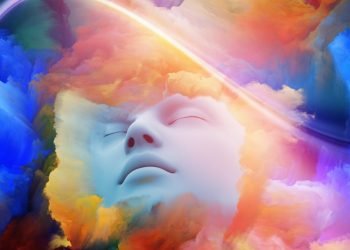Since we know that our actions, in a way, decide our course of life – you must be wondering if there is any point in prayers? Don’t you want to know who Brahman is and what is the meaning of Brahman? Read on to find out.
Prayers and Isvara
The answer to the question is yes. Prayers full of intense devotion and faith do work. It is because true belief would invoke the divine power present in us. You must realize that prayers are not answered based on God’s whims or biases. Devotees call on Isvara’s grace or power through their sincerity, self-effort, faith, and devotion.
Brahman
Brahman is the One changeless Truth or Reality. Brahman’s literal meaning is ‘That which is bigger than the biggest and subtler than the subtlest. Our minds cannot define or describe Brahman. In fact, no words can actually express the Brahman. He exists in all, and all exist in him. However, to convey some idea for us to understand, the Upanishads give pointers such as:
Satyam (Truth): Brahman is that which does not change in the three periods of Time: past, present, and future. Whatever changes in the Universe, Brahman remains changeless. So much so that Time does not exist in Him. The existence without change is Sat or Satyam.
Jnanam (knowledge): Jnanam refers to self-radiant Consciousness or awareness. Thus, it the principle of knowing without a knower or the known.
Anantam (Infinite): Infinite is that which does not have a beginning or an end. Therefore, he is the wielder of pure energy and possessor of pure Consciousness.
Ananda (Bliss): Bliss conveys a state of Conscious happiness. It is a state of unconditioned, objectless, independent joy. Ananda is where happiness is not dependent on anything or anyone in the world.
The word Brahman is the Tat aspect when meditating on the mahāvākya. It is ‘Tat tvam asi’, or ‘That thou art.’








